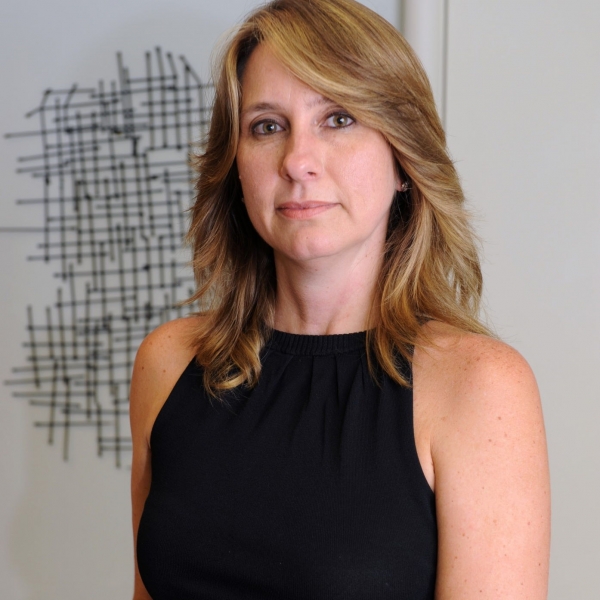Interview with Cintia Cercato – President of Abeso

An interview with Cintia Cercato - President of Abeso
Please tell us about your World Obesity Day campaign
Firstly, we decided to join forces with The Brazilian Society of Endocrinology and Metabolism (SBEM), to help amplify the impact of the campaign. We are both focused on obesity education and prevention, so it made sense for us to combine our efforts for World Obesity Day.
The World Obesity Day campaign strapline - ‘every body needs everybody’ does not quite translate into Portuguese so instead we chose to call our campaign ‘cuidar de todas as formas’ which translates to ‘take care of all shapes’ and also ‘take care in all ways’. So, we looked at the idea of how you look after people living with obesity. One of the most important ways is through healthcare, so we thought it was important to focus on engaging healthcare professionals.

We came up with the idea of developing a guide for healthcare professionals featuring advice on how to best treat patients with obesity. We invited the presidents of different medical associations to provide advice. In total 14 presidents contributed to the guide, from a very wide range of specialisms including orthopaedics, cardiology, urology and immunology. We asked what a doctor in their specialism should observe when they see a patient living with overweight or obesity. The guide is multi-disciplinary and covers all body systems, it is extremely interesting.
The other strand of our campaign was looking at how we take care of people through food, namely making sure people are educated about healthy food choices. We decided to address this topic in a few different ways. We developed an animation that explains why it is not good to consume large amounts of ultra-processed foods, we used a strawberry and a biscuit to illustrate the difference in what you consume. People have given us great feedback, they found it very helpful. Then finally, we created eBooks. We developed lancheira saudáve to help parents prepare healthy lunch boxes for children, and ‘Chef’s Secrets’ to provide general advice about healthy eating alongside cooking tips and recipes from celebrity chefs.
How have people reacted to the eBooks?
The reaction to the eBooks has been fantastic. Mothers in particular really appreciated the advice about how to create healthy packed lunches for their children. I shared the lancheira saudáve eBook with parents in my daughter’s school via our WhatsApp group and they, in turn, shared it with other mothers. Chef Secret’s was also very popular and was highly shared across social media, for instance we know it was shared in a group of more than 2,000 endocrinologists.
Did using celebrities make a difference?
Definitely. When you use celebrities, you can reach more people. In total 18 renowned chefs contributed to the eBook. Many of the chefs we featured in ‘Chefs Secrets’ such as Rodrigo Oliveira and Eduardo Castro are from very famous restaurants and have a massive social media following. So, working with them extended the reach of the campaign, especially as some of them posted about the eBook on their social media accounts. I think the content really captivated people as well. The eBook does not just include recipes, there are also tips about how to integrate fruit and vegetables into main meals and how to cook food with less fat.


Is the campaign ongoing, do you have any more activities planned?
Certainly, for us the campaign is not over. We have a huge audience on social media, our instagram account has more than 84,000 followers. Going forward we will be inviting the president of each society who contributed to the guide do a live interview on Instagram with the public. We want to give them a platform to inform the public about the relationship between their specialist area and obesity. For example, we will ask the President of the Brazilian Society of Cardiology to discuss cardiological problems in people living with obesity. I think it will be a great way to continue the campaign and improve understanding obesity and other health conditions.
What key learnings have you have taken from this year’s campaign?
I think we have seen that eBooks are very good, and we would want to do another one, but on different topics. We would also like to continue creating content aimed at mothers because they are a very receptive audience, they want to help prevent their children from developing obesity. I think it is also important for us to address weight stigma and to educate the public about the roots of obesity.
"We need to communicate the adverse health consequences of obesity but do so in a way that does not alienate people. " Cintia Cercato President of ABESO
Has the pandemic changed perceptions about obesity in Brazil?
Yes, it has. We took part in several media interviews in which we discussed the findings of the World Obesity Global Atlas report which showed that countries with high obesity levels experienced higher COVID-19 death rates. There has been a lot of interest, because naturally with everything we are going through in Brazil people are considering what needs to be done to improve public health. After World Obesity Day we took part in a meeting with stakeholders, including people that work in the Ministry of Health and medical societies to discuss what can be done to prevent obesity. As a result of the meeting, we are now preparing a document to submit to the government with recommendations about public policies that are needed to address obesity, such as changes to marketing rules and the introduction of a sugar sweetened beverage tax. COVID-19 has created a spotlight on obesity that was not there before and hopefully a window of opportunity to create change.
Is weight stigma an issue in Brazil?
Yes, there is weight stigma in Brazil, and it is important that we address it. The media often use negative images of people living with obesity. We want to address obesity without stigmatising people who are living with the condition. There are many people who are ambivalent about their excess weight and there is also a significant ‘body positivity’ movement. So, we have to find a balance. We need to communicate the adverse health consequences of obesity but do so in a way that does not alienate people. We are producing a position paper alongside the Brazilian Society of Endocrinology and Metabolism in which we talk about ‘controlled obesity’, the paper will be published later this year. We also intend to produce a guide for influencers on social media and for the media generally, to help improve the way that obesity is discussed in the public realm.
Visit our member, ABESO
Abeso is a multidisciplinary non-profit organization that brings together health professionals spread across the country, from different areas, dedicated to the study and treatment of obesity, metabolic syndrome and eating disorders.
They are endocrinologists, cardiologists, general practitioners, surgeons, nutrologists, psychiatrists, nutritionists, psychologists, physical education teachers and physiotherapists, among others.
Visit ABESO